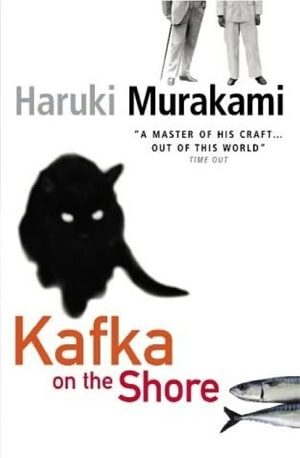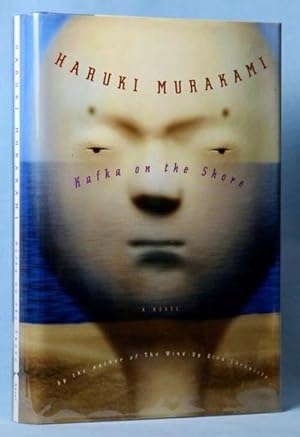


Some areas were the same, others were not. They experimented with touching each other in different places and discussed which areas were the most sensitive. Her public hair was fine and sparse, like a delicate willow tree. Her nipples swelled in a beautiful oval shape reminiscent of olives. Murakami often pans over the bodies of women with pornographic detail: He soon falls for the librarian Miss Saeki, which becomes the main source of the story’s themes. Kafka, as the 15-year-old renames himself, spends his time reading in a library, delving into books by Natsume Soseki and others. The story retells Oedipus in a postmodernist way with dream sequences. Kafka on the Shore follows a runaway 15-year-old boy and explores his psyche. They shared the same behavior and sexual significance. Eriko, in particular, felt like Rei from Evangelion. Instead, they felt like anime characters. Tengo is a writer who agrees to ghost write a novel written by the seventeen-year-old Eriko Fukada.Īs I read the novel, I struggled to imagine the characters as real. It follows a pair of long-lost lovers, Aomame and Tengo, as they become involved with a religious cult and mysterious entities called Little People.

1Q84 involves a mysterious world that seems to mirror our own. The book references George Orwell’s 1984 (which I’ve read several times) but felt disjointed. I would suggest 300-400 pages could’ve been cut without impacting the story and themes. And I am the type of person who reads Nietzsche and Aristotle for fun.ġQ84, in particular, could’ve used pruning. In fact, I started to skip over them and still understood what was going on and the “philosophy” Murakami attempted to show. None of these references had any importance to the stories. You’ll see prostitutes quote Hegel in Kafka, and other philosophic interplay. Rather, they point out the character’s level of intelligence and Murakami’s familiarity with literature. However, the quotes have little to do with the story. In 1Q84, he quotes from the Tale of the Heike and other Japanese literary texts. He also likes to pull in rather needless elements. This article will focus on sexuality and will quote explicit passages from Murakami’s works.Īs a postmodern writer, Murakami likes to toy with literary conventions, often self-referencing how you are reading a story and how the characters are story characters but don’t know it. I’ll focus on two books Kafka on the Shore and 1Q84. I’m writing this article in response to a reader’s question about how he writes about women. His work often focuses on loneliness and alienation. Haruki Murakami writes bestselling postmodern surrealist fiction.


 0 kommentar(er)
0 kommentar(er)
